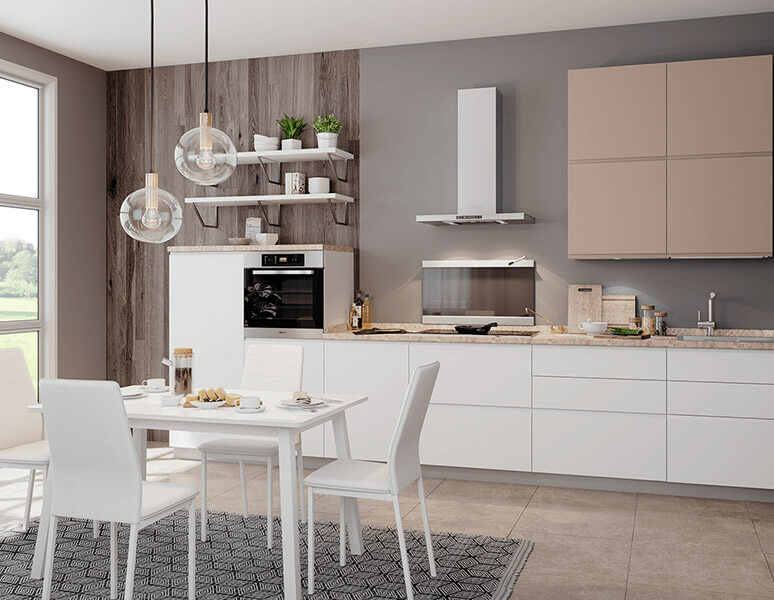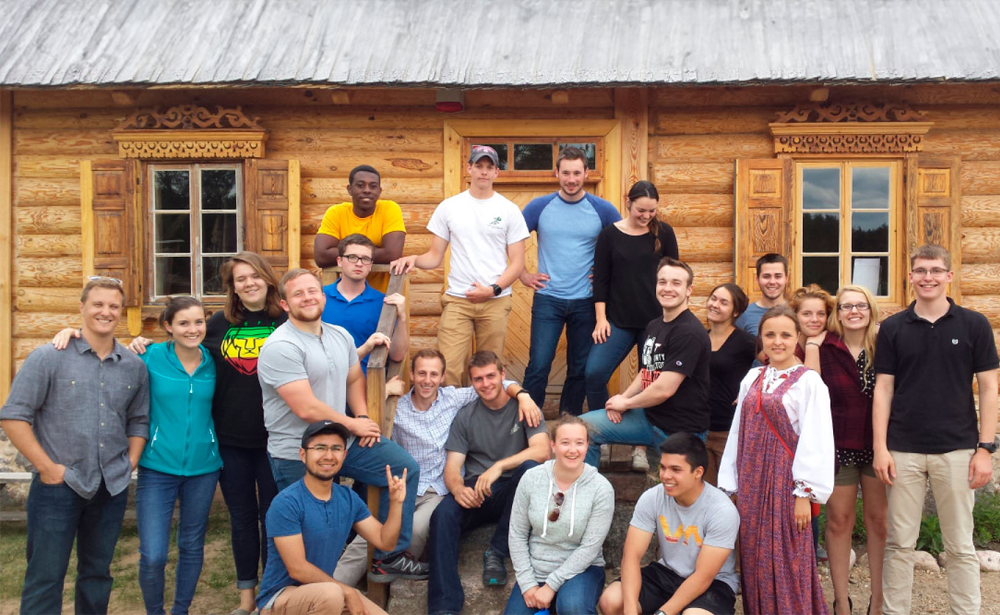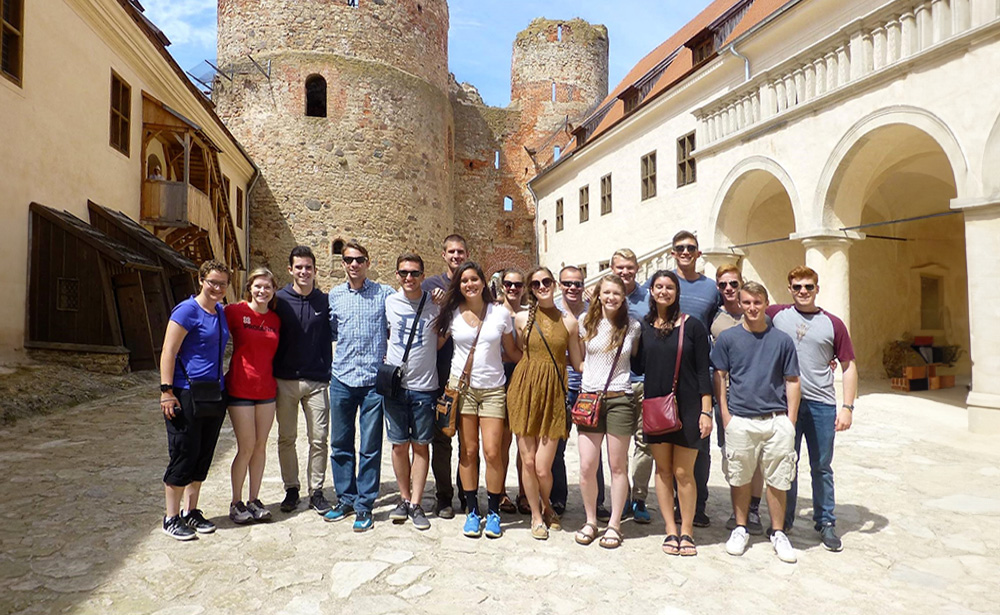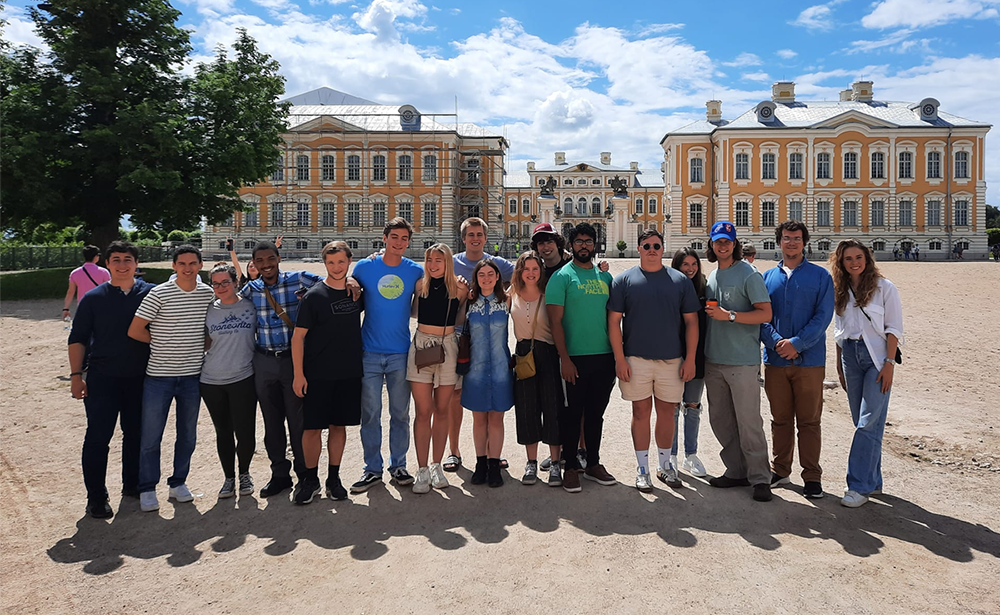Kitchen Appliances in Russian
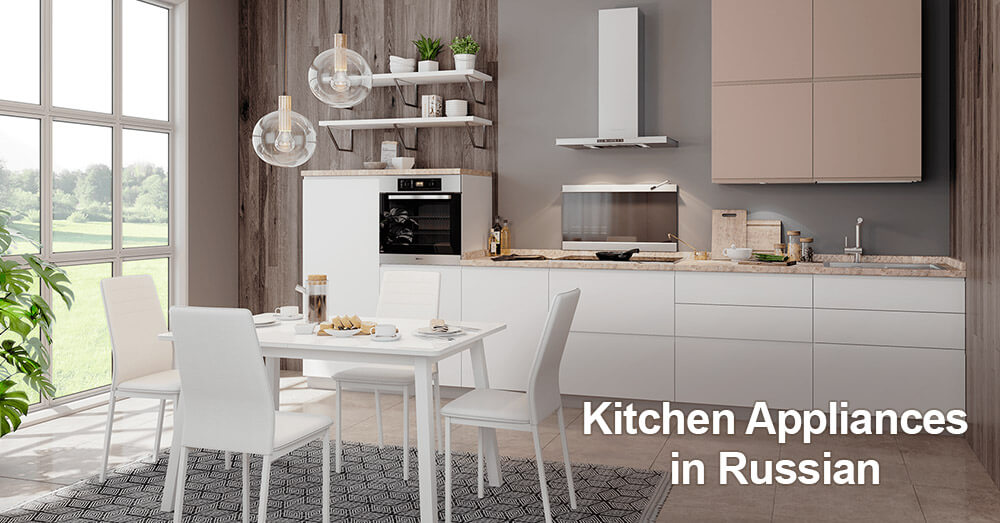
In this article, we are going to look at how to say the names of main kitchen appliances in Russian. This article will help those of you who are going to buy kitchen appliances in a store or online. In out next article we are going to talk about dishes and kitchen utencils in more detail.
Let’s begin with the simplest words:
Кухня [KOOH-nya] kitchen
Кухонный [KOO-ha-niy] kitchen (adj.)
Утварь [OOT-var’] utencil
The following phrase will be really useful for people who love cooking:
Готовить кушать / ужин [ga-TO-veet KOO-shat’ / OO-zheen] cook, cook / make dinner
Готовить [ga-TO-veet’] cook
Кушать [KO-shat’] eat
Now, have a look at your kitchen. Do you have any of this stuff there?

Кухонный шкаф [KOO-ha-niy SHKAF] kitchen cabinet
Кухня [KOOH-nya] kitchen (cabinets)
Кухонная техника [KOO-ha-na-ya TYEH-nee-ka] kitchen appliances
Холодильник [ha-la-DEEL’-neek] refrigerator
Морозильник [ma-ra-ZEEL’-neek] freezer
Морозилка [ma-ra-ZEEL-ka] freezer
Печка [PYECH-ka] stove
Плита [plee-TA] stove, cooker
Газовая плита [GA-za-va-ya plee-TA] gas cooker
Электрическая плита [e-lyek-TREE-chees-ka-ya plee-TA] electric cooker
Электрический чайник [e-leek-TREE-chyes-keey CHAY-neek] electric kettle
Посудомоечная машина [pa-soo-da-MO-yeech-na-ya ma-SHEE-na] dish washer
Посудомойка [pa-soo-da-MOY-ka] dish washer
Гриль [GREEL’] grill
Духовая печь [doo-ha-VA-ya PYECH’] oven
A more common name for the oven is:
Духовка [doo-HOF-ka] oven
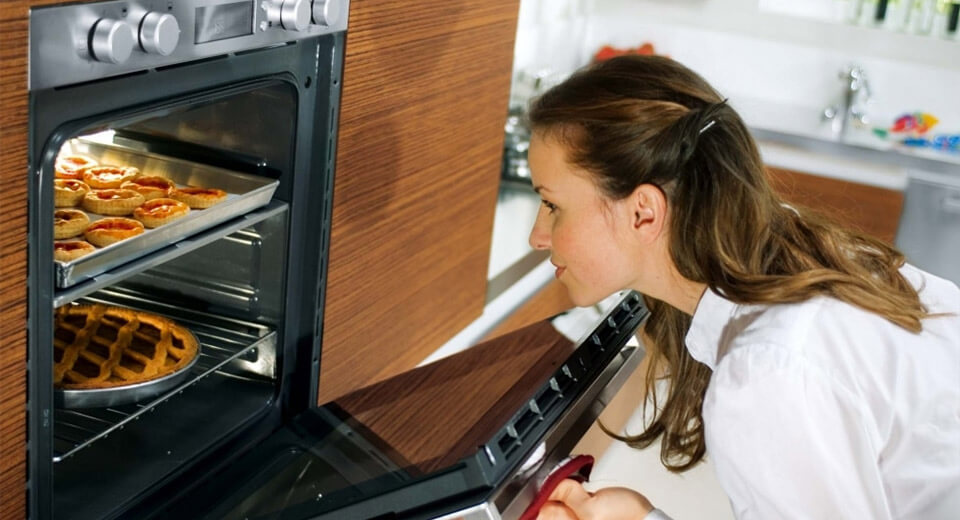
A more formal name for a microwave oven in Russian is:
Микроволновая печка [meek-ra-val-NO-va-ya PYECH-ka] microwave oven
But more often it’s called:
Микроволновка [meek-ra-val-NOF-ka] microwave (oven)
It’d be good for people who love cooking to know these words:
Миксер [MEEK-syer] mixer
Блендер [BLEN-der] blender
Мясорубка [mya-sa-ROOP-ka] meat grinder
Соковыжималка [sa-ka-vi-zhee-MAL-ka] juicer
Хлебопечка [hlye-ba-PYECH-ka] bread maker
Жаровня [zha-ROV-nya] roaster
Фритюрница [free-TYOOR-nee-tsa] fryer
Кухонный комбайн [KOO-ha-niy kam-BAYN] food processor
Тостер [TOS-tyer] toaster
A few names of kitchen appliances that are used to make desserts:
Йогуртница [YO-goort-nee-tsa] yogurt maker
Мороженица [ma-RO-zhye-nee-tsa] ice-cream maker
Пароварка [pa-ra-VAR-ka] steamer, double boiler
Блинница [BLEE-nee-tsa] pancake maker
Сушилка для овощей и фруктов [soo-SHEEL-ka dlya a-va-SHCHEY ee FROOK-taf] food dehydrator, dehydrator for vegetables and fruits

Here are some more simple words:
Раковина [RA-ka-vee-na] sink
Кран [KRAN] tap
Стол [STOL] table
Стул [STOOL] chair
Скатерть [SKA-tyert’] table cloth
Кухонное полотенце [KOO-ha-na-ye pa-la-TYEN-tse] kitchen towel
We hope you’ve liked this short kitchen “tour”. Now, it’s time to practise these words!
You may be interested
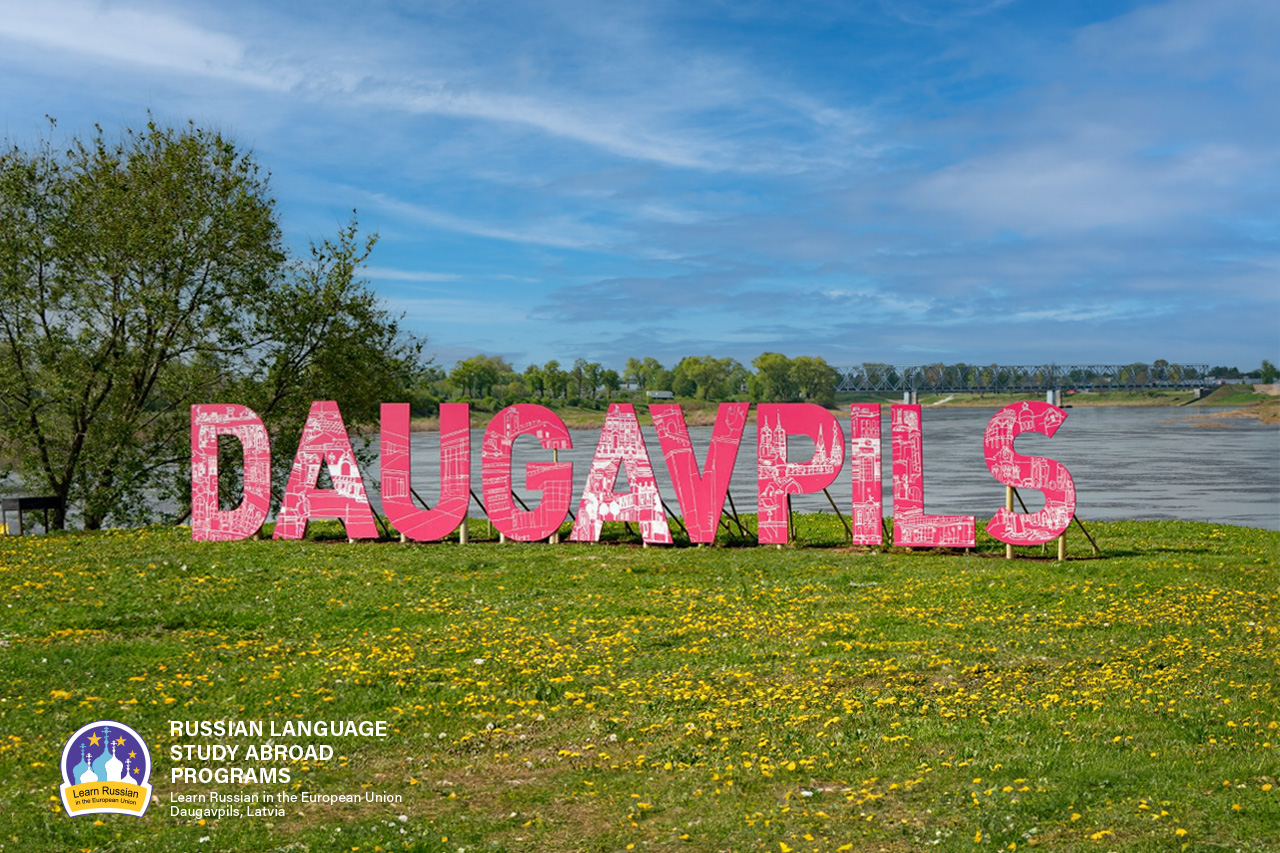
Why do people speak Russian in Daugavpils?
As it seems to us, Daugavpils is the best place to learn Russian now, because our city is situated in the EU and NATO, but at the same time 90% of the city’s population speak Russian at home.
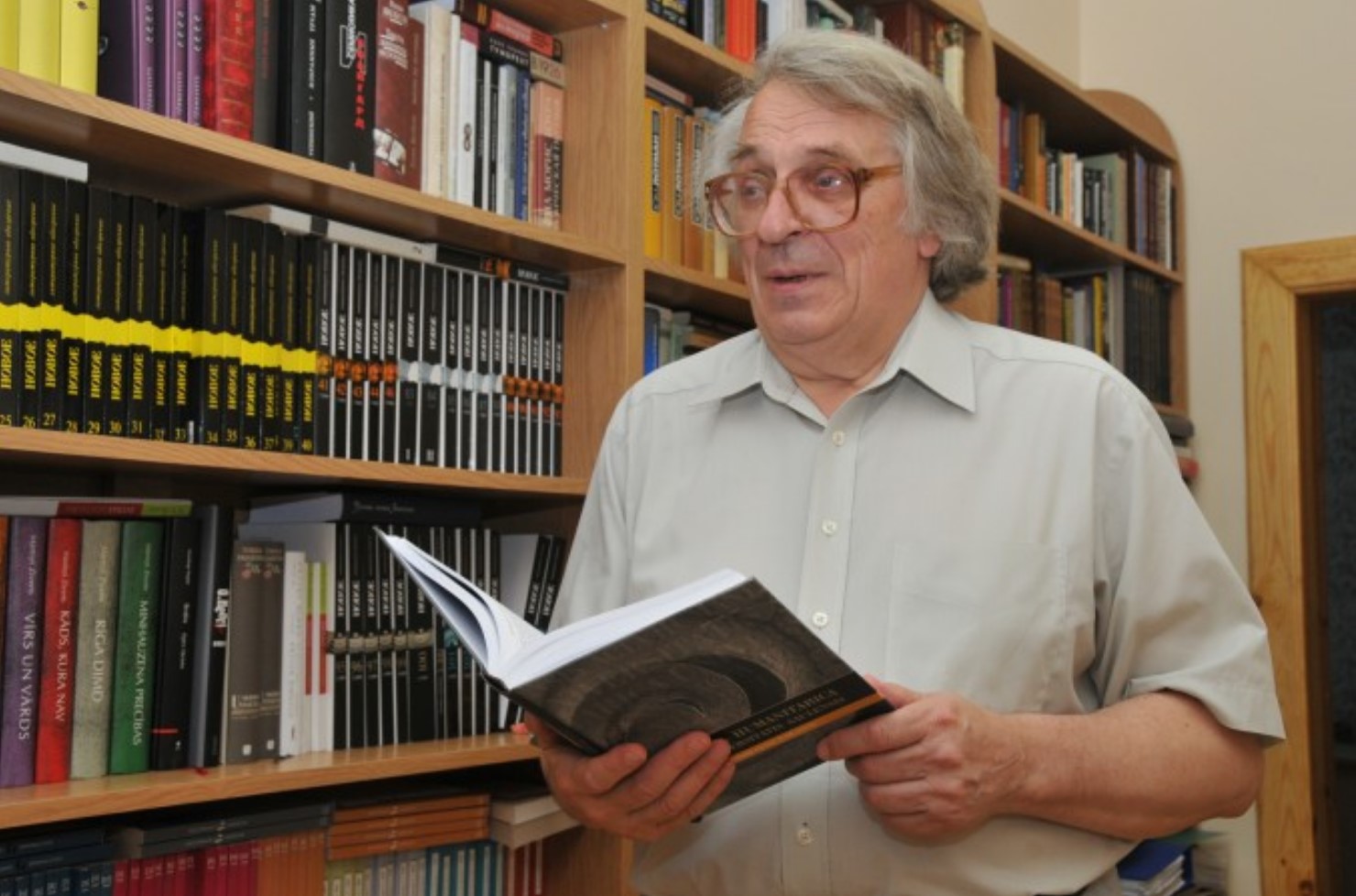
ЭТЮД О ДВИНСКЕ
Etude on Dvinsk by F.Fedorov
The Baltic region is one of the most catastrophe prone regions of the 2nd millennium, especially its second part; it is the centre of attraction of ‘geopolitical’ interests of the European world. Probably the most tragic fate has befallen to the eastern part of the present Latvia and its multi-titled town of Dinaburg – Dvinsk – Daugavpils. During its 730 years long history, the town went through five rather autonomous periods of development, five different lives (German, Polish, Russian, Latvian, Soviet), and at the beginning of the 1990s it entered into the 6th period.
The history of Dinaburg – Dvinsk – Daugavpils is the history of five attempts by the town to begin its life anew; and this is determined not only by the fact that the town was four times burned down and had to start life from scratch, but first and foremost because each of these periods was characterized by a total change of ethnos and the socio-cultural field.
The present article deals with the cultural space of the town in one of the most efficient periods of its development – from the 1860s till World War I.


